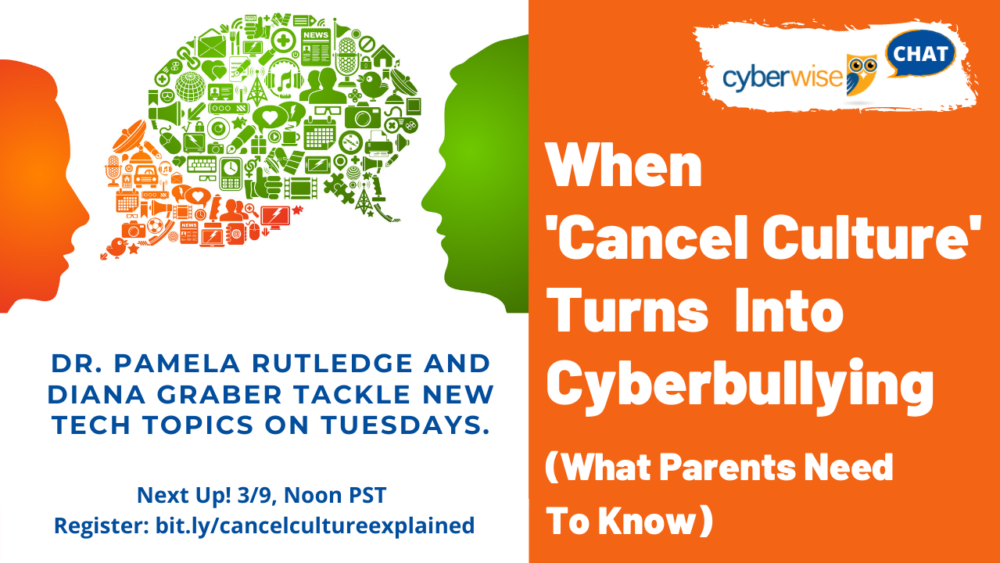There is an emerging acceptance of public “calling out,” name-calling, and “canceling” people across social and public media channels –aka “Cancel Culture.” The “Cancel Culture” is a crowd behavior where everyone jumps on the bandwagon and targets an individual. Sometimes a celebrity, sometimes a kid at school. The act of canceling (often with an accompanying hashtag) attempts to include others and implicitly creates and sanctifies groups of haters with an accompanying sense of belonging and the ability to rationalize that “it’s okay to target people because others are doing it.”
Teens might use the phrase “you’re canceled” in jest, but some are taking it a step farther and actually blocking, unfollowing, and boycotting peers on social media (and in real life) because of a personal opinion or for simply saying/doing something disagreeable. First used as a way to target celebrities—i.e., #TaylorSwiftIsOverParty—“Cancel Culture” has made its way into classrooms and into teen peer groups. This new form of cyberbullying has many parents concerned about how it’s affecting their kids.
What’s the difference between calling someone out, such as done by many supporting the #MeToo movement, and when is canceling just a form of bullying with a more palatable name?
In this Cyberwise Chat, Diana Graber and Dr. Pamela Rutledge talk to Rick Andreoli, Editor-In-Chief of Parentology, about “Cancel Culture” and everything parents should know to protect their children from this disturbing new trend. Send your questions!
Free Zoom webinar, noon PT, free. Also live-streamed on Facebook. bit.ly/cancelcultureexplained

 Dr. Pamela Rutledge is available to reporters for comments on the psychological and social impact of media and technology on individuals, society, organizations and brands.
Dr. Pamela Rutledge is available to reporters for comments on the psychological and social impact of media and technology on individuals, society, organizations and brands.